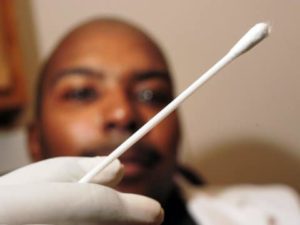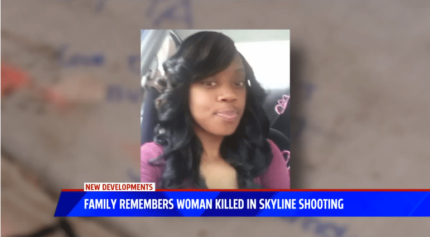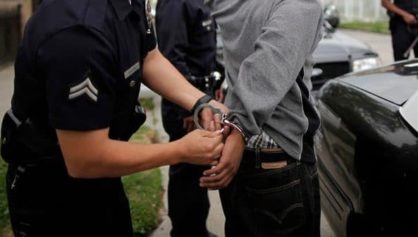
The ACLU says that San Diego police unlawfully collected DNA from five African-American minors. Photo by Getty Images /William Thomas Cain.
The ACLU of San Diego & Imperial Counties filed a lawsuit against the city of San Diego on Wednesday, Feb. 15, accusing city officers of illegally detaining and collecting DNA samples from a group of African-American minors without a warrant or parental consent.
The suit, filed in San Diego Superior Court on behalf of one of the families affected, stemmed from a March 2016 incident in which five African-American teens were stopped and searched by police as they walked in a park in the Logan Heights neighborhood, according to the ACLU-SDIC. The complaint argues that San Diego officers had no legal basis for the stop, noting an officer’s testimony at a June 2016 hearing where he admitted to stopping the minors simply because of their race and the fact that they were wearing blue on what officers believed to be a “West Coast Crip holiday.”
When their unlawful stop and frisk yielded no incriminating evidence, the officers proceeded to search the bag of one the boys — identified only by the initials P.D. — in which they found an unloaded revolver that was legally registered to the teen’s father, according to the lawsuit. P.D. was arrested, but officers told the other four teens they’d walk free so long as they submitted a DNA sample for inclusion in the SDPD’s DNA database.
The lawsuit notes that the boys did sign a consent form, by which they “voluntarily” agreed to officers swabbing their cheeks before being let go. P.D. was swabbed as well before being taken to jail.
“At no point prior to the DNA extractions did the officers attempt to obtain a warrant, and no exigent circumstances existed to justify a warrantless search and seizure of DNA,” the ACLU-SDIC lawsuit states. “Instead, the officers took the DNA sample pursuant to written SDPD policy authorizing police to obtain children’s DNA for investigative purposes based on their supposed consent.”
“… In addition to violating P.D.’s right to be free from unreasonable searches and seizures, the juvenile DNA policy and SDPD custom pursuant to that policy violated both P.D.’s and Ms. Wilson’s [P.D.’s mother] privacy, due process and familial association rights,” it continued.
The Electronic Frontier Foundation pointed out that California law does permit officers to collect DNA samples from minors, but only under narrow and severe circumstances — after the juvenile has been convicted of or pleaded guilty to a felony, or if they’re ordered to register as a sex offender or are in a court-mandated sex offender treatment program. SDPD officers clearly sidestepped these minimal legal protections, as none of the boys had been convicted of any such crime(s) and therefore shouldn’t have been asked to give a sample, the EFF stated.
The ACLU-SDIC is now seeking to change SDPD policies that allow officers to obtain DNA samples from juveniles without a warrant or parental consent, according to its website. The civil rights organization also is working to get police to destroy either P.D.’s DNA sample or the DNA profile created via his sample.
Overall, their lawsuit speaks to much larger issues involving over-policing, police racial bias and unwarranted surveillance of African-American and Latino communities in San Diego and other cities across the country. Such issues ultimately result in disproportionately high numbers of Black and brown people in the U.S. criminal justice system, further driving a wedge between police and nonwhite communities.
“Too many people of color have endured racial discrimination and profiling on so many levels,” said Jamie Wilson, P.D.’s mother. “My family is no exception and with the support of the ACLU, we’ve filed a lawsuit against the city. Let what happened to us be a lesson to the powers that be and all of San Diego about what our children deal with on a daily basis. The quality of policing in communities of color is inadequate and unjust. Our community demands better.”
Norma Chavez-Peterson, executive director of the ACLU-SDIC echoed Wilson’s sentiments, adding that incidents similar to what happened to P.D. and his friends are all too common in nonwhite communities throughout San Diego.
“The concerns raised in this case are representative of what too many San Diegans of color contend with far too often: racial bias in our policing, violations of basic principles of privacy and law enforcement’s practice of documenting Black and brown youth in secret databases without parental involvement,” Chavez-Peterson said. “We can and must do better.”


